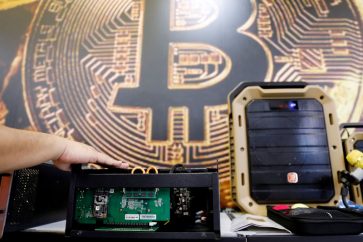The Philippines is moving forward with plans to introduce a non-blockchain-based central bank digital currency (CBDC) within the next two years, as revealed by Eli Remolona, the Governor of Bangko Sentral ng Pilipinas (BSP), on Feb. 12.
This initiative aligns with a global trend where regulators are exploring digital tokens as a secure payment method and a stable store of value, providing an alternative to more volatile cryptocurrencies. Remolona shared insights into the adoption of a wholesale CBDC model that will not utilize blockchain technology, diverging from the approach taken by some other central banks.
Remolona noted that previous attempts by central banks to implement blockchain technology for this purpose were not successful. The wholesale CBDC model will position banks as exclusive participants, with retail banking operations to build upon this foundation. This approach is expected to enhance the efficiency and safety of both domestic and international payment systems, providing banks with a reliable mechanism for real-time interbank settlements.
The BSP’s decision to focus on wholesale CBDC, according to Remolona, stems from its potential to offer a risk-free banking option and to support real-time payment systems. However, he acknowledged the challenges associated with retail CBDC, including the risks of disintermediation and the potential amplification of the central bank’s influence in financial markets.
The initiative to develop a wholesale CBDC is confirmed to be achievable within Remolona’s tenure, with a two-year timeline for implementation. The BSP aims to replicate successful models from other central banks that have undertaken similar projects.
Remolona highlighted global advancements in CBDC projects, citing Sweden’s e-krona and China’s digital yuan, which primarily focuses on retail payments.
The technological backbone for the Philippine CBDC will be the Philippine Payment and Settlement System, an infrastructure managed by the BSP itself, bypassing the need for blockchain technology. This move is supported by findings from the Bank for International Settlements (BIS), suggesting that wholesale CBDCs could enhance security against fraud and cyberattacks through more reliable digital record-keeping.
Globally, the exploration of CBDCs continues to gain momentum. For example, the Reserve Bank of India (RBI) is actively working to broaden the scope of its digital rupee by incorporating offline functionalities, aiming to extend digital currency access to regions with limited internet service and ensuring broader financial inclusion. RBI Governor Shaktikanta Das emphasized the gradual introduction of these capabilities through pilot programs.




 By:
By:




